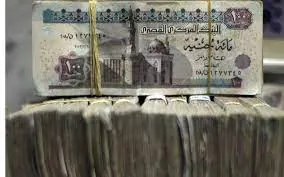Egypt's Economy Stabilizes with New IMF Agreement and Flexible Currency
Egypt's pound steadies after a strategic devaluation and an IMF deal, marking a significant shift towards economic stability.

Outline for Easy Navigation:
- Introduction: Egypt's Strategic Economic Reforms
- The IMF Deal and Its Implications for Egypt
- The Egyptian Pound's Response to Policy Changes
- Potential Impact on Local Businesses and Imports
- Future Economic Plans and Stability Measures
- FAQs Related to Egypt's Economic Reforms
- Conclusion and Further Resources
Introduction: Egypt's Strategic Economic Reforms
In a bold move to stabilize its economy, Egypt has recently embraced a series of strategic economic reforms, culminating in a significant devaluation of the Egyptian pound. This comes alongside the announcement of an expanded $8 billion programme with the International Monetary Fund (IMF), a pivotal step aimed at ensuring economic stability and restoring investor confidence.
The IMF Deal and Its Implications for Egypt
The IMF agreement signifies a monumental shift in Egypt's economic policy, introducing a more flexible exchange rate system. This transition is not just a prerequisite from the IMF but a crucial strategy for revitalizing an economy that has been grappling with a foreign currency shortage for the past two years. This shortage has notably hampered local business operations and led to considerable delays in commodity payments and port backlogs.
The Egyptian Pound's Response to Policy Changes
Following these significant policy changes, the Egyptian pound exhibited remarkable stability, maintaining its value around 49.5 to the dollar. This stability comes after a period of controlled valuation by the central bank, highlighting the positive market response to the government's commitment to a more dynamic and responsive economic framework.
Potential Impact on Local Businesses and Imports
Prime Minister Mostafa Madbouly emphasized the government's plans for substantial deals to ensure liquidity. Additionally, efforts will be made to work with merchants to stabilize prices and prioritize foreign currency access for essential commodity importers, a move expected to mitigate the immediate effects of the currency shift on local businesses and the general populace.
Future Economic Plans and Stability Measures
Despite the positive steps towards economic stabilization, challenges remain, particularly concerning the economy's previous dependence on a parallel market rate significantly lower than the official rate. The government's commitment to a more flexible exchange rate system marks a critical departure from past practices, promising a more sustainable economic environment conducive to growth and stability.
FAQs Related to Egypt's Economic Reforms
- What does the IMF deal entail for Egypt's economy?
- How will the flexible exchange rate system affect local businesses?
- What measures are being taken to ensure the stability of the Egyptian pound?
Conclusion and Further Resources
Egypt's strategic economic reforms and the recent IMF deal are pivotal milestones towards achieving long-term economic stability and growth. As the country embarks on this promising journey, continuous efforts to support local businesses, ensure liquidity, and stabilize the currency will be crucial. For more insights and updates on Egypt's economic reforms, visit Kiksee Magazine.
By embracing these reforms and working collaboratively with international partners, Egypt sets a precedent for economic resilience and sustainability, paving the way for a brighter and more prosperous future.
What's Your Reaction?





















